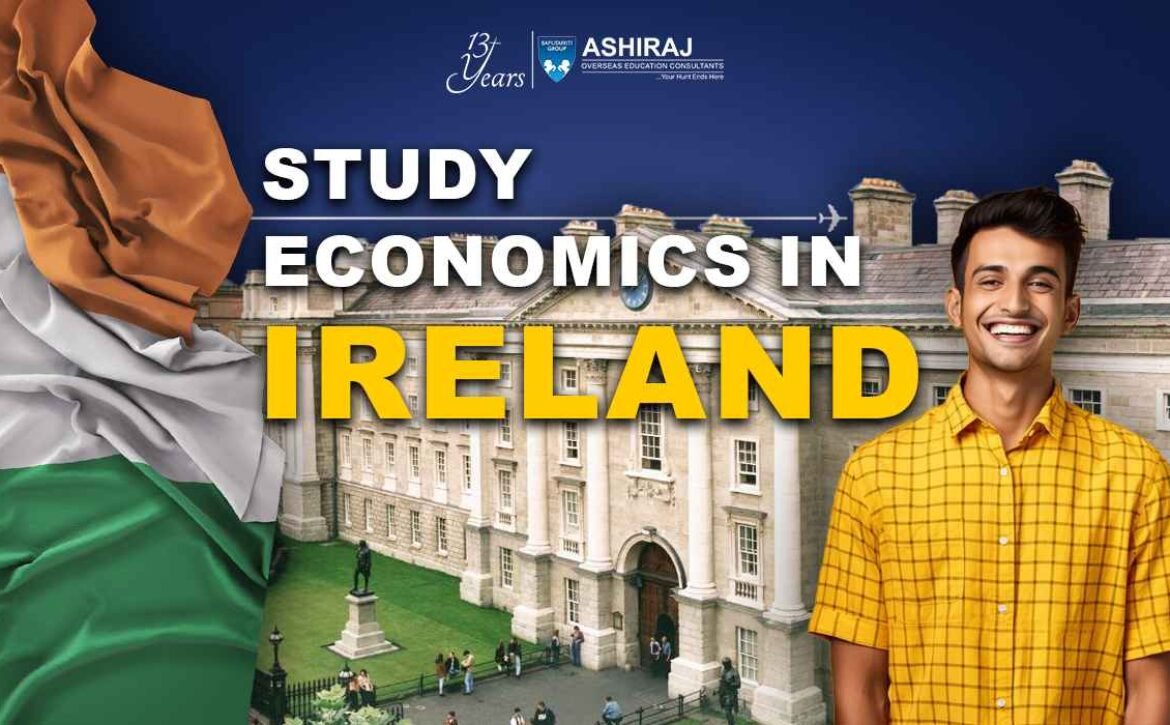
Economics in Ireland
Economics in Ireland encapsulates the intricate interplay between policy, industry, and society within the Emerald Isle’s economic landscape. Ireland’s economic narrative is one of resilience, innovation, and adaptability, marked by significant shifts over the past century. From its agrarian roots to a modern, diversified economy, Ireland has navigated challenges and embraced opportunities with aplomb. At the heart of Ireland’s economic story lies its integration into the global market, fostering a robust export-driven economy while simultaneously nurturing domestic industries.
The evolution of economics in Ireland reflects a dynamic blend of factors, including government policies, foreign direct investment, and the resilience of its workforce. The country’s strategic positioning within the European Union, coupled with favorable taxation policies, has attracted multinational corporations, propelling Ireland into a global economic player. Moreover, Ireland’s commitment to education and innovation has cultivated a skilled workforce and fostered a thriving technology sector. As Ireland continues to chart its economic course, balancing tradition with innovation, its story serves as a compelling case study in adaptation and growth within the global economy.
Why to Study Economics in Ireland?
- Dynamic Economic Environment: Ireland offers a vibrant economic landscape characterized by innovation, adaptability, and resilience. Students studying economics here get firsthand exposure to a market that’s deeply integrated into the global economy.
- Multinational Presence: With a host of multinational corporations making Ireland their European headquarters, students have ample opportunities to understand the dynamics of international trade, finance, and investment.
- Educational Excellence: Ireland boasts world-class universities offering top-notch economics programs. The academic environment encourages critical thinking and provides students with the skills needed to analyze complex economic issues.
- Strategic Location: As a member of the European Union, Ireland serves as a gateway to Europe. Studying economics here offers insights into EU policies, regulations, and market dynamics, opening doors to diverse career opportunities.
- Thriving Technology Sector: Ireland’s booming technology industry provides students with a unique perspective on the intersection of economics and innovation. From startups to established tech giants, the sector offers a wealth of learning opportunities.
- Career Prospects: A degree in economics from Ireland equips students with highly sought-after skills in data analysis, problem-solving, and critical thinking, paving the way for rewarding career paths in finance, consulting, government, and beyond.
In conclusion, studying economics in Ireland not only provides a rich academic experience but also equips students with the knowledge and skills needed to thrive in today’s interconnected global economy.
Top Universities to Study Economics in Ireland
University | QS World University Rankings 2023 | Type of University | Average Annual Fees | Programs Offered |
Trinity College Dublin | 1st | Public | €6,000 – €8,000 | – Bachelor of Arts in Economics |
– Master of Science in Economics | ||||
University College Dublin | 2nd | Public | €7,000 – €9,000 | – Bachelor of Commerce in Economics |
– Master of Science in Economic Policy | ||||
National University of Ireland, Galway | 3rd | Public | €6,500 – €8,500 | – Bachelor of Commerce in Economics |
– Master of Arts in Economics | ||||
University College Cork | 4th | Public | €6,500 – €8,000 | – Bachelor of Economics (Hons) |
– Master of Economics | ||||
Dublin City University | 5th | Public | €7,000 – €9,000 | – Bachelor of Arts in Economics |
– Master of Science in International Business Economics |
Studying economics in Ireland opens doors to prestigious universities offering top-notch programs. The QS World University Rankings 2023 highlight the leading institutions for economics education in Ireland. Trinity College Dublin secures the top spot, offering Bachelor of Arts and Master of Science programs in Economics. University College Dublin follows closely, providing Bachelor of Commerce and Master of Science options. The National University of Ireland, Galway, University College Cork, and Dublin City University complete the list, each offering a range of undergraduate and postgraduate programs tailored to meet the diverse interests and career goals of aspiring economists. With moderate annual fees and a reputation for excellence, these universities stand as pillars of academic distinction in the field of economics within Ireland.
Course Curriculum for Economics in Ireland
- Comprehensive Foundation: Economics courses in Ireland provide students with a solid grounding in economic theory, principles, and methodologies, laying the groundwork for advanced study and real-world application.
- Core Disciplinary Courses: Students delve into core areas such as microeconomics, macroeconomics, econometrics, and quantitative analysis, gaining a deep understanding of economic systems and behavior.
- Specialized Electives: Universities offer a diverse range of elective modules, allowing students to tailor their studies to match their interests and career aspirations. Specialized topics may include environmental economics, development economics, financial economics, and more.
- Practical Application: Many programs incorporate practical components such as case studies, research projects, and internships, providing students with hands-on experience and valuable skills applicable in the workforce.
- Interdisciplinary Approach: Economics courses often adopt an interdisciplinary approach, integrating insights from fields such as political science, sociology, and business studies, enriching students’ perspectives and analytical capabilities.
- Global Perspective: Given Ireland’s position in the global economy, courses typically emphasize international economics, trade, and globalization, preparing students for careers in an increasingly interconnected world.
- Industry-Relevant Skills: Throughout their studies, students develop critical thinking, problem-solving, data analysis, and communication skills highly valued by employers in sectors such as finance, consulting, government, and academia.
The course curriculum of economics in Ireland reflects a holistic approach, blending theoretical foundations with practical applications and interdisciplinary insights, equipping students with the knowledge and skills needed to excel in diverse career paths within the field of economics.
Eligibility Criteria & Admission Requirements for MS in Economics in Ireland
- Language Proficiency: Applicants must demonstrate proficiency in English through standardized tests such as IELTS or TOEFL. Typically, a minimum score of 6.5 in IELTS or 90 in TOEFL is required.
- Standardized Tests: Many universities require prospective students to submit scores from either the GRE or GMAT exams. A competitive score in these tests showcases the applicant’s aptitude for academic success. Generally, a GRE score of 320 or above or a GMAT score of 650 or above is preferred.
- Academic Credentials: Applicants are expected to hold a bachelor’s degree or its equivalent from a recognized institution. The degree should demonstrate a strong academic background in economics or a related field.
- Passport & Student Visa: International students must possess a valid passport and obtain a student visa to study in Ireland. The visa application process typically requires proof of acceptance from a recognized educational institution and sufficient financial means to cover tuition and living expenses.
- Work Experience: While not always mandatory, relevant work experience in economics or related fields can strengthen an applicant’s profile. It demonstrates practical knowledge and adds value to the academic experience.
Test | Minimum Score |
IELTS | 6.5 |
TOEFL | 90 |
GRE | 320 |
GMAT | 650 |
Meeting the eligibility criteria for economics programs in Ireland ensures that prospective students possess the necessary academic background, language proficiency, and potential for success in their chosen field of study.
Documents Required for Studying Economics in Ireland
- Passport: A valid passport is essential for international students applying to study economics in Ireland. It serves as identification and is required for the student visa application process.
- Letters of Recommendation (LOR): Two or more letters of recommendation from academic or professional sources attest to the applicant’s character, academic abilities, and suitability for the economics program.
- Statement of Purpose (SOP): The SOP outlines the applicant’s academic and career goals, reasons for choosing economics in Ireland, and how the program aligns with their aspirations.
- Curriculum Vitae (CV): A comprehensive CV highlights the applicant’s academic achievements, work experience, extracurricular activities, and relevant skills, providing a holistic view of their background and capabilities.
- Official Transcripts: Official transcripts of high school and any tertiary education attended provide a record of academic performance and achievements.
- Educational Certificates: Copies of educational certificates, including diplomas or degrees, authenticate the applicant’s academic qualifications and eligibility for the economics program.
- Work Experience Certificate: If applicable, a work experience certificate verifies the applicant’s professional experience in economics or related fields.
- Proof of Financial Resources: Proof of financial resources, such as bank statements or scholarship letters, demonstrates the applicant’s ability to cover tuition fees and living expenses while studying economics in Ireland.
Ensuring the submission of these documents is crucial for a complete and successful application to economics programs in Ireland, facilitating the assessment of the applicant’s eligibility and suitability for the chosen course of study.
Admission Process for Economics in Ireland
- Research: Begin by researching universities in Ireland offering economics programs. Consider factors such as reputation, program curriculum, faculty expertise, and location.
- Review Requirements: Thoroughly review the admission requirements for each university. These typically include academic qualifications, language proficiency tests, standardized test scores, and supporting documents.
- Prepare Documents: Gather all required documents, including transcripts, certificates, passport, letters of recommendation, statement of purpose, CV, and proof of financial resources. Ensure they meet the specified criteria and are accurately completed.
- Language Proficiency: Take the necessary language proficiency tests such as IELTS or TOEFL and achieve the required minimum scores.
- Standardized Tests: If required, register for and take standardized tests like the GRE or GMAT. Aim to achieve competitive scores to strengthen your application.
- Submit Application: Complete the online application form for your chosen universities, paying attention to deadlines. Upload all required documents and pay the application fee, if applicable.
- Await Decision: After submitting your application, wait for the university’s decision. This may take several weeks. Be patient and monitor your email for updates or requests for additional information.
- Acceptance and Visa: Upon receiving an acceptance letter, proceed to apply for a student visa. Follow the instructions provided by the Irish immigration authorities and prepare all necessary documentation.
- Enrollment: Once your visa is approved, finalize your enrollment by accepting the offer from your chosen university and arranging accommodation and travel plans.
Following these steps diligently ensures a smooth and successful admission process for studying economics in Ireland, paving the way for a rewarding academic journey in a vibrant and dynamic environment.
“Education is the most powerful weapon which you can use to change the world.”
Nelson Mandela
Cost of Economics Course in Ireland
- Tuition Fees: Tuition fees for economics programs in Ireland vary depending on the university and level of study. On average, undergraduate tuition fees range from €6,000 to €9,000 per year, while postgraduate fees can range from €7,000 to €12,000 per year.
- Living Expenses: Living costs in Ireland, including accommodation, food, transportation, and other expenses, can add up. On average, students should budget around €10,000 to €12,000 per year for living expenses.
- Health Insurance: International students are required to have health insurance while studying in Ireland. This cost typically ranges from €300 to €600 per year, depending on the coverage and provider.
- Books and Supplies: Budget for textbooks, course materials, and supplies, which can amount to a few hundred euros per year.
- Other Expenses: Additional expenses may include visa fees, travel expenses, social activities, and personal expenses. It’s wise to budget extra for unexpected costs.
- Scholarships and Financial Aid: Explore scholarship opportunities and financial aid options offered by universities, government organizations, and private institutions to help offset the cost of studying economics in Ireland.
Understanding the cost of studying economics in Ireland is essential for prospective students to budget effectively and plan for their academic journey in a foreign country.
Scholarships for Economics Courses in Ireland
Scholarship Name | Amount | Application Deadline |
Government of Ireland Scholarships | Full tuition fees, stipend for living expenses, and other allowances | Varies (typically between December and March) |
Trinity College Dublin Scholarships | Up to €5,000 per year | Varies (typically between April and June) |
University College Dublin Global Excellence Scholarships | Up to 50% of tuition fees | Varies (typically between January and March) |
National University of Ireland, Galway International Scholarships | Up to €3,000 | Varies (typically between February and May) |
Dublin City University International Merit Scholarships | Up to €2,000 | Varies (typically between December and February) |
Scholarships play a crucial role in making economics education in Ireland more accessible to students from diverse backgrounds. The Government of Ireland Scholarships offer comprehensive financial support, covering tuition fees, living expenses, and other allowances. Universities such as Trinity College Dublin, University College Dublin, National University of Ireland, Galway, and Dublin City University also provide various scholarships to help offset tuition costs. Application deadlines for these scholarships typically fall between December and March, although specific dates may vary. Prospective economics students in Ireland are encouraged to research and apply for scholarships to support their academic endeavors and alleviate financial burdens.
Career Opportunities After Economics in Ireland
Job Profile | Average Salary (per annum) |
Economic Analyst | €35,000 – €50,000 |
Financial Analyst | €40,000 – €60,000 |
Policy Analyst | €35,000 – €50,000 |
Market Research Analyst | €30,000 – €45,000 |
Investment Analyst | €45,000 – €70,000 |
Economist | €40,000 – €65,000 |
Data Analyst | €35,000 – €55,000 |
Business Consultant | €45,000 – €70,000 |
Government Economist | €40,000 – €60,000 |
International Trade Specialist | €35,000 – €55,000 |
Economics graduates in Ireland have a wide array of career opportunities available to them across various sectors. From analyzing market trends to shaping government policies, the skills acquired through an economics degree are highly valued in the job market. Economic analysts, financial analysts, and policy analysts play crucial roles in understanding and forecasting economic trends, with salaries ranging from €35,000 to €50,000 per annum. Investment analysts and business consultants command higher salaries, ranging from €45,000 to €70,000, reflecting the specialized nature of their roles. Government economists and international trade specialists contribute to shaping economic policies and strategies, with salaries ranging from €40,000 to €60,000. Data analysts and market research analysts also play integral roles in gathering and analyzing data to inform decision-making processes, with salaries ranging from €30,000 to €55,000. With diverse career paths and competitive salaries, economics graduates in Ireland can pursue fulfilling and rewarding careers in a variety of fields.
Frequently Asked Questions About Economics in Ireland
Economics graduates in Ireland have a wide range of job opportunities, including roles as economic analysts, financial analysts, policy analysts, and economists in various sectors such as government, finance, consulting, and research.
Yes, international students can study economics in Ireland. They need to meet the admission requirements of Irish universities, including language proficiency tests like IELTS or TOEFL and academic qualifications.
Yes, several scholarships are available for studying economics in Ireland, including government scholarships, university-specific scholarships, and external funding opportunities. These scholarships can help cover tuition fees and living expenses.
The average salary for economists in Ireland varies depending on factors such as experience, qualifications, and sector of employment. On average, economists in Ireland earn between €40,000 to €65,000 per annum.
While work experience is not always required, having relevant work experience can enhance an applicant’s profile and provide practical insights into the field of economics. Some programs may offer internship opportunities as part of the curriculum.
Some of the top universities in Ireland for studying economics include Trinity College Dublin, University College Dublin, National University of Ireland, Galway, University College Cork, and Dublin City University.
The duration of economics programs in Ireland varies depending on the level of study. Typically, undergraduate programs last for three to four years, while postgraduate programs, such as master’s degrees, can range from one to two years.
Some universities in Ireland offer part-time or online options for studying economics, providing flexibility for students who may have other commitments such as work or family responsibilities.
Economics programs in Ireland offer specializations in various areas, including microeconomics, macroeconomics, econometrics, financial economics, development economics, and international economics.
To apply for a student visa to study economics in Ireland, international students need to obtain acceptance from a recognized Irish educational institution, provide proof of financial means, and submit required documentation to the Irish immigration authorities.




